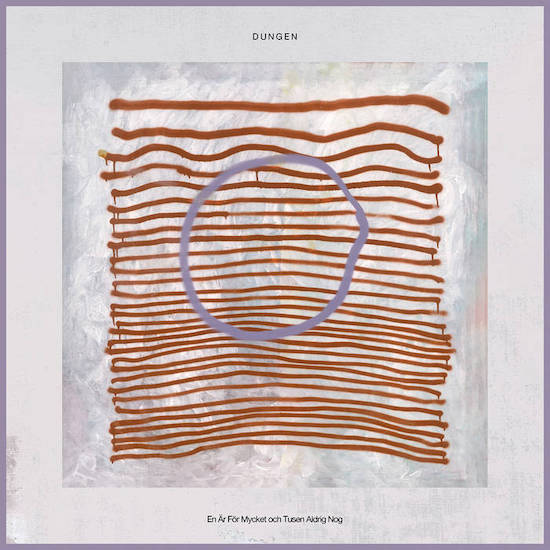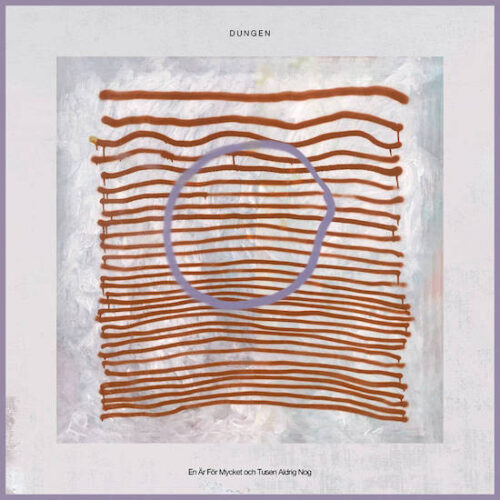Language has never been a barrier for Dungen. Throughout their discography, Swedish remains an integral component, communicating if not obvious meanings then moods and emotions. The title of the Stockholm quartet’s new record En Är För Mycket och Tusen Aldrig Nog translates as One is Too Much and a Thousand is Never Enough. Sobriety serves as a figure of speech and defines the new approach to recording, tied in with the decision of Dungen’s frontman Gustav Ejstes to abstain from alcohol. This move defines the sound of the album which in parts is distilled, lacking the intoxicating bits of psychedelia from previous studio work Allas Sak, released in 2015.
The purity of mind is manifested through various musical realms associated with post-transformative periods in the lives of certain artists. The smeared watercolour of keyboards in the introspective finale of fourth track ‘Möbler’ could be featured on Brian Eno’s ambient albums. Pastoral ‘Höstens Färger’ echoes post-Beatles Paul McCartney’s Ram. Occasionally enlightenment is overshadowed by a sense of middle-brow comfort: the lounge-esque bits remind old-fashioned hotel lobbies and relevant playlists. ‘En Är För Mycket och Tusen Aldrig No’ oddly associates with Paul Mauriat’s ‘Love Is Blue’.
With the classic Dungen line-up on board, the album reveals their scope for experimentation. Sudden moves such as drum’n’bass-y ‘Var Har Du Varit?’ give a hint at the band’s desire to take off the Magician’s Hat and try on a different kind of attire). Retrofuturistic ‘Klockan Slår, Den Är Mycket Nu’ is the best example of this transition. The elaborate prog composition blends familiar ingredients – waltzing rhythm, glockenspiel-esque keyboards and field recordings of Swedish folk poetry – with less expected components, e.g. scratching and wacky bass.
Yet their trademark ecstatic psych sound is not entirely absent. Featuring disobediently fuzzy guitar, ‘Nattens Sista Strimma Ljus’ seemingly pulls back to the oeuvre of their earlier records. Reine Fiske’s playing doesn’t fail to elicit an adrenaline boost. Balancing between cascading arpeggios and fuzzy riffs, the guitar fills the rollicking sonic space provided by other three Dungen members – bassist Mattias Gustavsson, drummer Johan Holmegard and Gustav Ejstes (vocals). In their union, the four whirl into a strange pagan ecstasy that combines Scandinavian folk sensibility and a sparkling psych facade.
From what one can hear on the new Dungen album, sobriety can be trippy. Perhaps, sonically the record is less cohesive than previous albums of the adventurous quartet. Still, it feels great to dig this album as it is not straightforward either.



